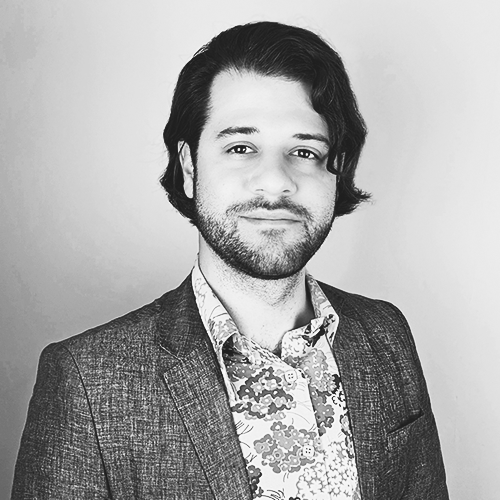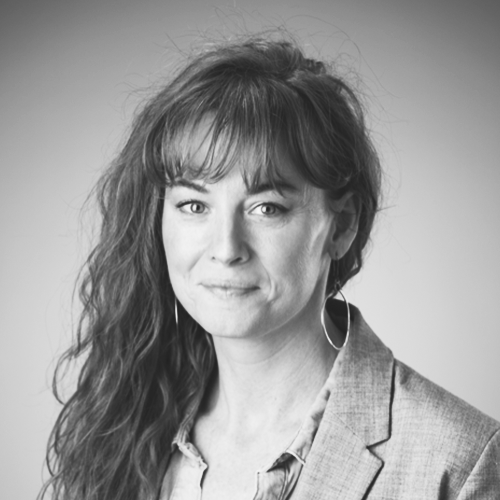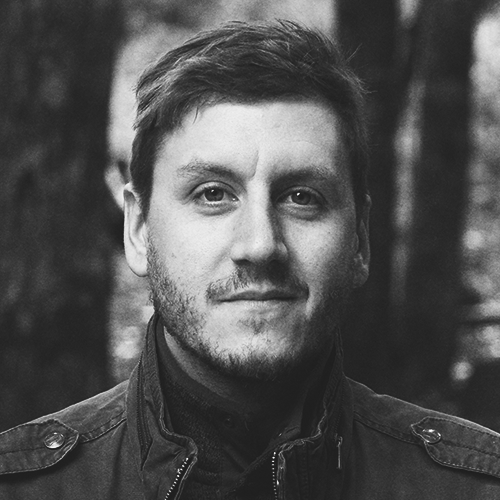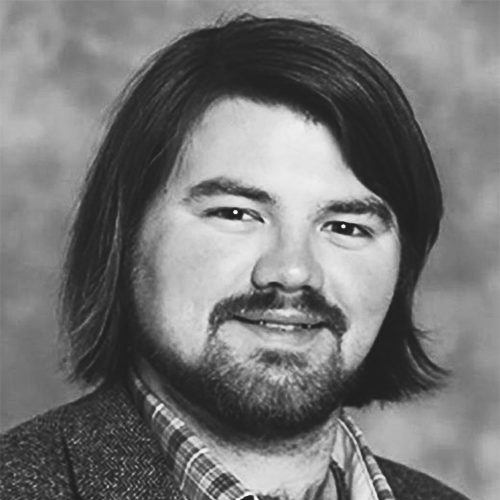Alexander Menrisky is an Assistant Professor of English at the University of Connecticut. Professor Menrisky is the author of “Wild Abandon: American Literature and the Identity Politics of Ecology” (Cambridge University Press, 2021). He is currently working on a second book project, tentatively entitled “Everyday Ecofascism,” which considers casual and systemic — rather than intentional and overt — expressions of white supremacist, anti-Indigenous, and anti-immigrant thinking in environmental art and politics. Professor Menrisky’s work has also appeared in Criticism: A Quarterly for Literature and the Arts, ISLE: Interdisciplinary Studies in Literature and Environment, Mosaic, GLQ: A Journal of Lesbian and Gay Studies, Resilience, Edge Effects magazine, and elsewhere. He also curates the Association for the Study of Literature and Environment’s Teaching Resources Database.
Event Overview
Join us for the next installment of this webcast series during which the five interdisciplinary creators of the web zine “Against the Ecofascist Creep” will address the structural conditions of environmental crisis and injustice. Hosted by Cornell’s College of Arts and Sciences and moderated by Assistant Professor of Anthropology Chloe Ahmann, the roundtable will expose and debunk six “everyday ecofascist myths” that circulate in a variety of media.
What You'll Learn
- The definition, scope, history, and present influence of ecofascism in U.S. and global politics
- How to counter the ecofascist “myths” circulating in popular culture and everyday speech
- Strategies and resources for combating ecofascist violence and promoting environmental justice
- The process of creating a public-facing work of scholarship
- The experience of working collaboratively and cross-institutionally in an academic environment
Speakers
April Anson is an Assistant Professor of Public Humanities at San Diego State University, core faculty for the Institute for Ethics and Public Affairs, and affiliate faculty in American Indian Studies. Her research explores the historical and ongoing connections between climate change and white supremacy, as well as the Indigenous environmental justice traditions that eclipse those relations. Professor Anson is the co-founder of the Anti-Creep Climate Initiative and co-author of “Against the Ecofascist Creep,” and she was a Mellon postdoctoral fellow at the University of Pennsylvania. Her research has appeared in boundary 2, Resilience, Environmental History, Western American Literature, and other journals.
Bruno Seraphin is a Ph.D. candidate in Sociocultural Anthropology and a graduate minor in American Indian and Indigenous Studies at Cornell University. He is a scholar of critical climate studies, settler colonial studies, and social movement media methodologies. A settler raised on occupied Nipmuc land in Massachusetts, Mr. Seraphin is an award-winning filmmaker with a BFA in film from New York University and an M.A. in folklore from the University of Oregon. His writing has been published in Western Folklore, The Trumpeter: Journal of Ecosophy, and “Routledge Handbook of Ecocultural Identity.” He co-authored the webzine “Against the Ecofascist Creep.”
Cassie Galentine is currently a doctoral candidate in the University of Oregon English department. She holds a Master’s degree in English from Northern Arizona University. Ms. Galentine is interested in the intersection of environmental justice, medical humanities, and critical race and ethnic studies in U.S. literature and popular culture. Specifically, her current research examines representations of dirt, disease, and racial discourses of hygiene in 20th-century multi-ethnic U.S. women’s working-class literature.
Chloe Ahmann is an environmental anthropologist at Cornell studying the long afterlife of American industry. Professor Ahmann’s forthcoming book, “Futures After Progress,” is based in Baltimore, where she follows industrialism’s enduring traces in toxified landscapes, patchy regulation, quotidian expressions of white supremacy, and particular orientations toward time. She is especially interested in the kinds of environmental futures that take form amid these legacies. This interest carries into Professor Ahmann’s newer work on ecofascism in the Pacific Northwest, where she considers the dark utopic visions that sustain far-right environmental groups.
Shane Hall is an Assistant Professor of Environmental Studies at Salisbury University and studies how the relationships among racism, militarism, and climate change are represented in U.S. literature and popular culture. He is currently working on a book about the cultural construction of “environmental” and “climate” migrants and how these migrants figure centrally in militarized narratives of climate futures. Professor Hall earned his Ph.D. from the University of Oregon’s Environmental Studies, Science, and Policy Program.

Alexander Menrisky is an Assistant Professor of English at the University of Connecticut. Professor Menrisky is the author of “Wild Abandon: American Literature and the Identity Politics of Ecology” (Cambridge University Press, 2021). He is currently working on a second book project, tentatively entitled “Everyday Ecofascism,” which considers casual and systemic — rather than intentional and overt — expressions of white supremacist, anti-Indigenous, and anti-immigrant thinking in environmental art and politics. Professor Menrisky’s work has also appeared in Criticism: A Quarterly for Literature and the Arts, ISLE: Interdisciplinary Studies in Literature and Environment, Mosaic, GLQ: A Journal of Lesbian and Gay Studies, Resilience, Edge Effects magazine, and elsewhere. He also curates the Association for the Study of Literature and Environment’s Teaching Resources Database.

April Anson is an Assistant Professor of Public Humanities at San Diego State University, core faculty for the Institute for Ethics and Public Affairs, and affiliate faculty in American Indian Studies. Her research explores the historical and ongoing connections between climate change and white supremacy, as well as the Indigenous environmental justice traditions that eclipse those relations. Professor Anson is the co-founder of the Anti-Creep Climate Initiative and co-author of “Against the Ecofascist Creep,” and she was a Mellon postdoctoral fellow at the University of Pennsylvania. Her research has appeared in boundary 2, Resilience, Environmental History, Western American Literature, and other journals.

Bruno Seraphin is a Ph.D. candidate in Sociocultural Anthropology and a graduate minor in American Indian and Indigenous Studies at Cornell University. He is a scholar of critical climate studies, settler colonial studies, and social movement media methodologies. A settler raised on occupied Nipmuc land in Massachusetts, Mr. Seraphin is an award-winning filmmaker with a BFA in film from New York University and an M.A. in folklore from the University of Oregon. His writing has been published in Western Folklore, The Trumpeter: Journal of Ecosophy, and “Routledge Handbook of Ecocultural Identity.” He co-authored the webzine “Against the Ecofascist Creep.”

Cassie Galentine is currently a doctoral candidate in the University of Oregon English department. She holds a Master’s degree in English from Northern Arizona University. Ms. Galentine is interested in the intersection of environmental justice, medical humanities, and critical race and ethnic studies in U.S. literature and popular culture. Specifically, her current research examines representations of dirt, disease, and racial discourses of hygiene in 20th-century multi-ethnic U.S. women’s working-class literature.

Chloe Ahmann is an environmental anthropologist at Cornell studying the long afterlife of American industry. Professor Ahmann’s forthcoming book, “Futures After Progress,” is based in Baltimore, where she follows industrialism’s enduring traces in toxified landscapes, patchy regulation, quotidian expressions of white supremacy, and particular orientations toward time. She is especially interested in the kinds of environmental futures that take form amid these legacies. This interest carries into Professor Ahmann’s newer work on ecofascism in the Pacific Northwest, where she considers the dark utopic visions that sustain far-right environmental groups.

Shane Hall is an Assistant Professor of Environmental Studies at Salisbury University and studies how the relationships among racism, militarism, and climate change are represented in U.S. literature and popular culture. He is currently working on a book about the cultural construction of “environmental” and “climate” migrants and how these migrants figure centrally in militarized narratives of climate futures. Professor Hall earned his Ph.D. from the University of Oregon’s Environmental Studies, Science, and Policy Program.
- View slide #1
- View slide #2
- View slide #3
- View slide #4
- View slide #5
- View slide #6
View Keynote by completing the form below.
You're Registered!
